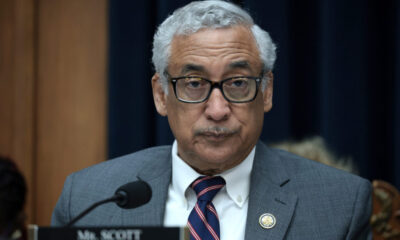Politics
US Rejects ICJ Ruling on Gaza Aid, Calls Court Politically Biased

The United States has condemned a ruling by the International Court of Justice (ICJ) that mandates Israel to facilitate the entry of aid into the Gaza Strip. The ruling, issued on March 12, 2024, has prompted strong criticism from US officials, who described it as a politically motivated decision that undermines Israel’s position in the ongoing conflict.
In a statement released on Wednesday, the US State Department characterized the ICJ’s ruling as “another corrupt ruling.” It suggested that the court’s non-binding advisory opinion unfairly criticizes Israel while providing a “free pass” to the UN Relief and Works Agency (UNRWA) for its alleged connections to Hamas. The statement came amid ongoing efforts by President Donald Trump and Secretary of State Marco Rubio to promote peace in the region.
US Criticism of the ICJ’s Authority
The State Department’s statement emphasized that Israel’s refusal to open the Rafah border crossing for humanitarian aid constitutes a violation of a ceasefire agreement that the country signed, which is backed by the US. The ICJ specifically ruled that UNRWA does not have links to Hamas, a conclusion that has been contested by US officials.
“This ICJ’s ongoing abuse of its advisory opinion discretion suggests that it is nothing more than a partisan political tool, which can be weaponized against Americans,” the State Department’s statement further noted. This assertion highlights the US government’s concern over the independence and impartiality of the ICJ in addressing complex international issues.
The Gaza Strip has been a focal point of humanitarian challenges, with various international bodies calling for increased aid access for the Palestinian population. The ICJ’s ruling aims to ensure that humanitarian assistance can reach those in need, yet the US response indicates a significant rift between the two entities regarding the interpretation of international law and the obligations of sovereign states.
As the situation in the region evolves, the stance taken by the United States may influence ongoing diplomatic efforts and the response from other international actors. The ICJ’s ruling underscores the complexities of international law and the differing perspectives that nations hold on its application in conflict areas.
With the US government firmly opposing the ICJ’s position, the implications for future aid delivery and diplomatic negotiations in the region remain to be seen.
-

 Entertainment2 months ago
Entertainment2 months agoAnn Ming Reflects on ITV’s ‘I Fought the Law’ Drama
-

 Entertainment3 months ago
Entertainment3 months agoKate Garraway Sells £2 Million Home Amid Financial Struggles
-

 Health2 months ago
Health2 months agoKatie Price Faces New Health Concerns After Cancer Symptoms Resurface
-

 Entertainment2 months ago
Entertainment2 months agoCoronation Street’s Carl Webster Faces Trouble with New Affairs
-

 Entertainment2 months ago
Entertainment2 months agoWhere is Tinder Swindler Simon Leviev? Latest Updates Revealed
-

 Entertainment3 months ago
Entertainment3 months agoKim Cattrall Posts Cryptic Message After HBO’s Sequel Cancellation
-

 Entertainment1 month ago
Entertainment1 month agoOlivia Attwood Opens Up About Fallout with Former Best Friend
-

 Entertainment2 months ago
Entertainment2 months agoMasterChef Faces Turmoil as Tom Kerridge Withdraws from Hosting Role
-

 Entertainment3 months ago
Entertainment3 months agoSpeculation Surrounds Home and Away as Cast Departures Mount
-

 World2 months ago
World2 months agoCole Palmer’s Mysterious Message to Kobbie Mainoo Sparks Speculation
-

 Entertainment2 months ago
Entertainment2 months agoITV’s I Fought the Law: Unraveling the True Story Behind the Drama
-

 Entertainment3 months ago
Entertainment3 months agoMarkiplier Addresses AI Controversy During Livestream Response





















